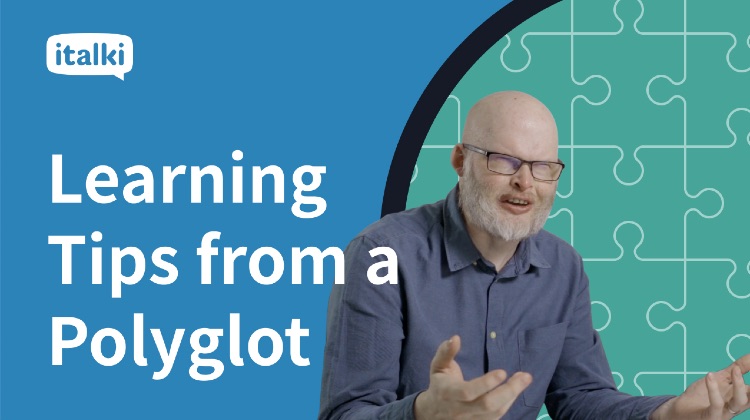Richard Simcott is a British polyglot, who has studied over 50 languages. HarperCollins described him as one of the most multilingual people in the United Kingdom, and the Goethe-Institut has named him Ambassador for Multilingualism.
Richard is the original founder of the Polyglot Conference www.polyglotconference.com. italki is the main sponsor of the 2020 Polyglot Conference Online.
I’ve been through the language learning process many, many times and one of the most common questions I get asked is how do you learn a question quickly? How fast can you learn a language? These are questions that are legitimate and also interesting to look into. I have some bad news for you. There’s no magic pill. There’s nothing you can do to make yourself speak a language magically overnight or
even in a few months to the level that you imagine you are going to speak it.
So first of all, acknowledge that you are a human being. Acknowledge that sometimes we expect too much of ourselves and that we need to maybe think about what we need to do and there are ways to do that and
here are five tips that I can give you how to manage your expectations and how to achieve the goals that you have in mind
1. Write down what you want to use the language for?
What’s the reason? Is it a holiday? Is it to go and visit a specific thing? A museum? An art gallery? Is it to go attend a meeting or an event? And so you therefore have an idea of the kinds of situations that you are going to be in.
2. Think of the types of situations you are going to be in?
Do you need to check into a hotel? Do you need to talk to a taxi driver? Do you need to ask about certain things about maybe an art gallery? And you have an idea of the types of conversations you’ll have.
3. Look at the time frame that you have
For example, when are you taking your trip? When are you using your language and where are you now? How long do you have between those two periods of time? And then break down in months and weeks what it is your going to achieve in those times. So it could be at the end of the first week, you want to learn how to greet people and just introduce yourself. The second week you may want to move onto another topic and so on and so on and so on until you get to your final goal.
4. Focus on the words that you need to know
Remember that you will forget things. Concentrate on what you need to know. It’s very tempting when you start learning a language to see a list of occupations and you think you need to learn a hundred or two hundred words for different jobs or different colors or anything and everything you can imagine. But focus on what you want to say. Make it about what you need to communicate. Because the rest you can get later.
5. Practice, practice, practice
This sounds like you need to have lessons all the time. Actually that’s not true. What I recommend you do are two contact lessons per week where you actively study the language. That could be an hour. That could be 45 minutes. It depends on your comfort level but make sure that you do have at least two hours a week where you move forward in your studies. In between those two lessons you should spend time to revise what you’re doing. Maybe it’s rereading your notes, maybe it’s listening to tapes, maybe it’s practicing with somebody. Maybe it’s thinking about what you’ve done. Try recreating in your head, the sentences, the vocabulary that you have been encountering in your lessons or studying.
The biggest difference between a successful language learner and an unsuccessful language learner is the final element - practice, practice, practice. It has to be regular and you have to commit to it everyday. Make sure that you say to yourself, “I will do this!” and set a time and set a goal for when you are going to do it before you do other things.
Good luck with your language learning!







